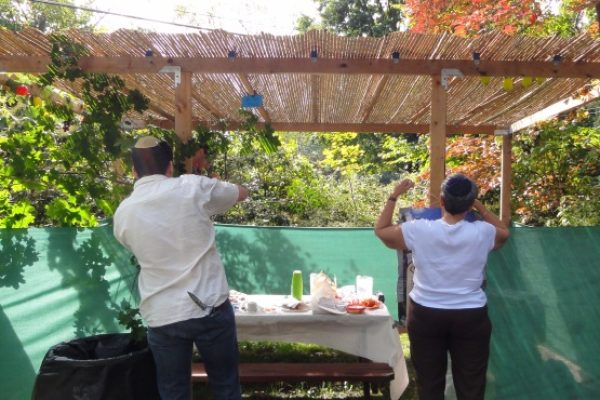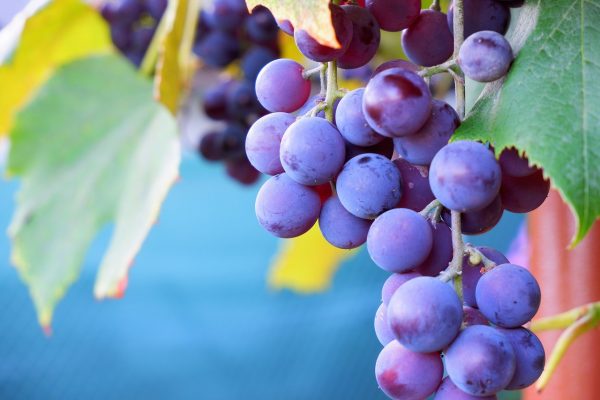Before Building the Sukkah
Take a few moments to breathe deeply. Close your eyes and think about your house or apartment; then think about the sukkah you’re about to build. Imagine the chinks in its roof, how vulnerable it is.
How thankful I am for the chance to enact the mitzvah of building a sukkah, to connect me with all who labor with their hands.
May this sukkah be a place of joyful welcoming, reminding us that even in a flimsy structure with leaky roof we can still share what we have with others.
May this sukkah increase my compassion for those who live at the mercy of the elements, and my intention to help the homeless and needy in my own community.
There is no Temple, and I do not farm: I cannot make a harvest offering as in days of old. My offering to You is the work of my hands and the openness of my heart.
In the Sukkah: Ushpizin
Eternal God, spread over us sukkat shlomekha, your sheltering peace. Surround us with your radiance, and open our hearts that we may feel your abundance. Let there be food and drink for all who hunger and thirst.
To this meal we summon sublime guests, our symbolic companions in this festival meal.
Welcome Abraham and Sarah! May we be strengthened by your spirit of adventure and by the courage of your convictions.
On other nights, choose other figures to welcome, and name a quality of theirs you want to embody.
In the Sukkah: Lulav and Etrog
Take up the lulav and etrog.
May my thoughts be holy, in token of the abundance of blessing that is mine from heaven and earth. With these four species I reach out to the Source of all Life, whose Presence is with us in all directions and all ways.
Wave the species in the six directions.
בָּרוּךְ אַתָּה יָהּ אֱלֹהֵינוּ רוּחַ הָעוֹלָם אֲשֶׁר קִדְּשָׁנוּ בְּמִצְוֹתָיו וְצִוָּנוּ עַל נְטִילַת לוּלָב
Barukh Atah Yah, Eloheynu ruakh haolam, asher kidshanu b’mitzvotav v’tzivanu al netilat lulav.
בְּרוּכָה אַתְּ יָהּ אֱלֹהֵינוּ רוּחַ הָעוֹלָם אֲשֶׁר קִדְשַׁתְנוּ בְּמַצּוֹתֶיהָ וְצִוַתְנוּ עַל נְטִילַת לוּלָב
Brukhah At Yah Eloheynu ruakh haolam asher kid’shatnu b’mitzvoteha v’tzivatnu al n’tilat lulav.
Blessed are you, Yah, Breath of Life, who sanctifies us with Your commandments and has enjoined upon us the mitzvah of the lulav.
בָּרוּךְ אַתָּה יָהּ אֱלֹהֵינוּ רוּחַ הָעוֹלָם שֶׁהֶחֱיָנוּ וְקִיְּמָנוּ וְהִגִּיעָנוּ לַזְּמָן הַזֶּה
Barukh Atah Yah, Eloheynu ruakh haolam, sheheheyanu v’kiy’manu v’higiyanu lazman hazeh.
בְּרוּכָה אַתְּ יָהּ אֱלֹהֵינוּ רוּחַ הָעוֹלָם שֶׁהֶחֱיָתְנוּ וְקִיְּמָתְנוּ וְהִגִּיעָתְנוּ לַזְּמָן הַזֶּה
Brukhah At Yah Eloheynu ruah haolam sheheheyatnu v’kiy’matnu v’higiatnu lazman hazeh.
Blessed are you, Yah, Breath of Life, who has kept us alive, sustained us, and enabled us to reach this moment.










